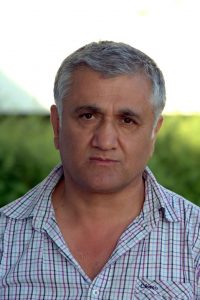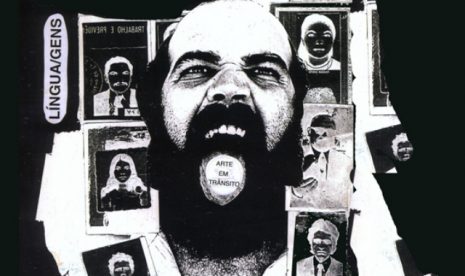Book fairs and freedom
[vc_row full_width=”stretch_row_content_no_spaces” full_height=”yes” css_animation=”fadeIn” css=”.vc_custom_1516891729158{background: #ffffff url(https://www.indexoncensorship.org/wp-content/uploads/2018/01/6MD4OKVXIG5JX3NEIA2M_prvw_63818-1024x683ss-1.jpg?id=97759) !important;}”][vc_column width=”1/6″][/vc_column][vc_column width=”2/3″][vc_custom_heading text=”After Gothenburg and Frankfurt book fairs faced tension over who was allowed to attend, we asked four leading thinkers, Peter Englund, Ola Larsmo, Jean-Paul Marthoz, Tobias Voss, to debate the issue” font_container=”tag:h2|text_align:left|color:%23000000″][/vc_column][vc_column width=”1/6″][/vc_column][/vc_row][vc_row][vc_column][vc_column_text]
WORDS APART
In the first of a series of pieces on where the line is drawn on freedom of speech at book fairs, DOMINIC HINDE interviews PETER ENGLUND, a former member of the Swedish Academy’s Nobel committee
Peter Englund is a familiar face around the world, even if many outside Sweden would struggle to place him straight away. For seven years, the award-winning author and former permanent secretary to the Swedish Academy was a fixture on TV screens, emerging each autumn to announce the winner of the Nobel Prize in Literature.The Nobel committee has attracted criticism for some of its choices over the years, but Englund, who retired from the post in 2015, said its decisions were never politically charged, and that the Swedish tradition of open dialogue had always been a core principle.
“When I was permanent secretary I used to say that you could never win the Nobel Prize because of your political view, but that it was quite possible to win in spite of your political attitude. The Swedish Academy is also extremely conscious of the extraordinary importance of freedom of expression, not least because it is a basic requirement if writers and researchers are going to be able to work properly.”
Englund is a long-time supporter of free speech causes around the world and, in his own work, has written extensively about totalitarianism in Europe under both communist and fascist regimes. He recently joined the debate closer to home on the competing demands of freedom of speech and growing right-wing movements in Sweden.
The past decade has seen the emergence of far-right populism in the traditionally liberal and open Nordic state. The Sweden Democrats party – who grew from the fringe white power movement in the 1990s – have made significant inroads in parliament and an alternative far-right media has blossomed. More extreme neo-Nazi groups have ridden on the coat tails of the Sweden Democrats and asserted their right to protest in the name of free speech, claiming Sweden is a country in decline, where the mainstream media ignores crime and immigration issues. Englund and some of his fellow writers have increasingly found themselves dubbed an elite of “cultural Marxists” by far- right activists. There is even a Swedish word – åsiktskorridor – which specifically refers to the narrow corridor of opinion extremists assert is allowed by the political establishment.
“I think it is important that we quite simply refuse to recognise this description of the situation. It is an important part of the populist right’s tactics to whip up ‘culture wars’ over more-or-less fictional symbolic questions, and you have to avoid letting yourself get dragged in,” said Englund.
Confronted with the openly anti-democratic and xenophobic politics which is emerging, many on the Swedish left and centre-right have begun to grapple with how Sweden, which has the oldest press freedom laws in the world, can reconcile its commitment to free speech and diversity with such views. In September 2017, the debate came to a head when Nya Tider (New Times), a populist right-wing newspaper, which has been accused of publishing fake news, was booked to appear at the annual Gothenburg Book Fair.
The fair is Sweden’s biggest cultural and journalistic event, but several well-known journalists and writers who would usually be there chose to stay away in protest at Nya Tider’s attendance. Some argued that Sweden’s tradition of a free press meant even the far-right were entitled to have their opinions heard, but Englund and others decided not to take part.
“I chose not to participate because it meant that I would have to appear on the same stage – broadly speaking – as these right-wing extremists, homophobes, conspiracy theorists, anti-Semites, Holocaust deniers and Putin supporters, and that would have helped to normalise their views,” argued Englund.
He believes that freedom of expression does not mean automatically welcoming extremists to all platforms, and that the Swedish commitment to an open society does not entail encouraging participation by extremist voices.
“Another important tactic for the populist right is to make themselves mainstream, and that is not something I want to contribute to” he explained. “For me [The Gothenburg controversy] was not a question of freedom of expression. That freedom remains intact. Nobody has tried to stop their paper being printed or attacked their journalists. On top of that, freedom of expression does not mean that you can be allowed to say anything at all, and does not mean that you have an absolute right to take part in any kind of forum.”
Events in Gothenburg reflected a wider disagreement in Swedish society about how best to counter populist politics and where the line between freedom of expression and extremism sits. Englund acknowledges that opponents of the far-right have not always got this right. The country goes to the polls in less than a year and the Sweden Democrats have ambitions to play a role in government, meaning the question may soon become more pressing than ever.
“In Sweden there have been attempts to deal with the far-right question through a combination of shutting them out and through triangulation,” he said. “Shutting them out means refusing to co-operate with them. Triangulation is not about accepting their description of the situation, or their proposed methods for dealing with it, but about understanding that among their voters there is a frustration, and even a fear, which does somehow need to be addressed, and which you can neither ignore nor tweet to death with smart sarcastic posts.
“History is fairly instructive on this. A necessary step for those sorts of movements to come to power – and this happened in both Italy and Germany – was that already established power structures had to invite them in, operating under the serious misconception that they could then be tamed. Those countries that were able to avoid fascism in the 1930s did it not least by showing resistance instead.”
That means being prepared to challenge those from all sides who threaten democratic principles, he believes.“We should, of course, be wary of the threat from the extreme right – the past tells us that – in the same way we have to keep an eye out for what is happening on the extreme left. I believe in democracy in Europe, but to avoid it meeting the same fate as the Weimar Republic, it has to be belligerent.”
Dominic Hinde is a journalist
[/vc_column_text][/vc_column][/vc_row][vc_row][vc_column width=”1/4″][vc_icon icon_fontawesome=”fa fa-quote-left” color=”custom” align=”right” custom_color=”#dd3333″][/vc_column][vc_column width=”3/4″][vc_custom_heading text=”The Swedish Academy is also extremely conscious of the extraordinary importance of freedom of expression” google_fonts=”font_family:Libre%20Baskerville%3Aregular%2Citalic%2C700|font_style:400%20italic%3A400%3Aitalic”][/vc_column][/vc_row][vc_row][vc_column][vc_column_text]
WHY I ATTENDED GOTHENBURG
Award-winning Swedish author OLA LARSMO explains why he went to the Gothenburg Book Fair
One of the important freedom of expression debates in Sweden has been running for about a year now and concerns the annual Gothenburg Book Fair. When it was announced that the extreme right-wing publication Nya Tider was allowed to rent a space at the 2017 Fair, some 200 Swedish writers wrote in a joint statement that they would not attend. This sparked a heated debate. What about defending the rights of people to spread deplorable or even dangerous opinions? What happens if you don’t?
I decided to attend the fair – along with other writers who stated that they would not be run out of the place by extremists. But I have great respect for those who chose not to. We are all trying to defend society against what must be considered a rising tide of fascism. But how to do that, and at the same time defend freedom of speech?
On 7 April 2017, a man hijacked a truck in central Stockholm and drove down a pedestrian street, targeting everyone in his way. Five people were killed. The suspect later said he was acting as a supporter of Isis. The response from ordinary people was massive. Beside the mountain of flowers in central Stockholm, it was obvious that everybody was determined to counteract the intimidation of terror by going on with life as normally as they could, because the trust between ordinary citizens is what makes an open society possible.
This was very much at the back of my mind when I decided to go to the fair. We also managed to organise a number of seminars and events that addressed the threat hate speech poses to freedom of speech. It felt like an opportunity to point to the elephant in the middle of the room.
Nya Tider is not “banned” – in fact they receive a tax- financed grant of about $358,167 – the same as other papers with the same circulation. The question was whether the fair had an obligation to open its space to a paper associated with the extreme right. Since the fair is a private enterprise, many felt that they were within their rights to choose their exhibitors freely.
During the last few years, Swedish writers, journalists and politicians have been facing a rising wave of death threats and hate speech. Solid research shows that these threats emanate mostly from right-wing extremists and, to a lesser degree, from radical Islamists.
They target publicists with the purpose of driving them to self-censorship.
So how, then, should society deal with these threats with- out lowering the ceiling for freedom of speech? That this threat is real became obvious as a demonstration of several hundred neo-Nazis tried to reach the fair on the Saturday, but were stopped by the Gothenburg police. The attendance that day shrank to half the ordinary numbers.Writers are a specific target for these extremists, and the 200 writers stated openly that they did not want to share the floor with a paper associated with that political agenda.Personally I feel that those of us committed to defending freedom of speech have to use all powers to counter the double threat we are now facing: that of intimidation through hate speech and, on the other hand, stronger legislation that threatens to smother what it is supposed to defend. We can’t close our eyes to either.
Ola Larsmo is a long-time president of Swedish PEN
[/vc_column_text][vc_row_inner][vc_column_inner width=”1/4″][/vc_column_inner][vc_column_inner width=”3/4″][/vc_column_inner][/vc_row_inner][vc_column_text]
MAKING IT FAIR
No serious book fair could exclude or censor a legal publication, argues Frankfurt’s vice president of international affairs TOBIAS VOSS
The Frankfurt Book Fair is a commercial enterprise. Yet the “commodity” we trade in is a very distinctive one: books convey ideas and, among other things, ideas significantly shapes social discourse, whether aesthetic, moral or political in nature. In this respect, it is necessary to regularly question the limiting of “critical” or “problematic” content. All book fairs thrive on the diversity of content presented by participants. In this regard, book fairs that strive to meet this objective are, therefore, a demonstration of the diversity of opinion and discourse. No serious international book fair that aims to represent the market and diversity of opinion is in a position to exclude or censor market players.
This approach – tolerating at times extremely problematic positions – must then also apply to titles that are perceived as an affront, as offensive or downright repugnant, by segments of the public.
The only exception for such a ban or exclusion is existing legislation. Only if a title is forbidden by law in Germany, then we feel it is right to ban this title or even the actual fair participant, from the exhibition.
Our book fair respects the separation of powers as an essential organisational principle for guaranteeing democratic freedoms, the associated institutions and the decisions and measures established under it. Whenever existing laws are violated at Frankfurt, we, as the organiser, will take action against this infringement through the department of public prosecution and the police.
A functioning democracy must tolerate dissent (as it has, after all, done successfully in Germany for decades), and must accept that the freedom of expression also applies to segments of the public that question – and at times even wish to do away with – the established legal order. The fair does not see it as its duty to establish its own political, moral or aesthetic criteria for permitting or forbidding things.
In keeping with its principles, the Frankfurt is committed to freedom of expression, freedom of publication, dialogue as a means of fair communication and respect for the democratic separation of powers and the decisions and measures that have been established to ensure it. The fair demonstrates this position in a wide variety of ways – through international involvement, by supporting the “Cities of Refuge” project and by curating well over 200 discussion events at our event and at book fairs abroad.
Tobias Voss is vice president, international affairs, of the Frankfurt Book Fair
[/vc_column_text][vc_row_inner][vc_column_inner][vc_column_text]

Crowds gather outside the Frankfurt Book Fair, the world’s largest book trade-fair, Marc Jacquemin/Frankfurt Book Fair
[/vc_column_text][/vc_column_inner][/vc_row_inner][vc_row_inner][vc_column_inner width=”1/4″][/vc_column_inner][vc_column_inner width=”3/4″][/vc_column_inner][/vc_row_inner][vc_column_text]
TALK THE TALK
Banning organisations with which you disagree means you don’t have the chance to argue your case, says JEAN-PAUL MARTHOZ
The recent Gothenburg and Frankfurt book fairs have again been riven with controversies around the presence of far-right publishers. From a progressive perspective, banning the far-right seems the appropriate thing to do. The rationale is clear: the barbarians are at the gates and no one has ever said that democracies should offer their foes the rope with which to hang them.
From a liberal point of view, however, things are not so easy. Liberal democracies are, by definition, committed to providing space to ideas that radically question their most essential values – and even threaten their very existence.
There should be freedom for the enemies of freedom. As long as far-right publishers are not legally banned, and don’t exhibit books that clearly flout the law, there are few arguments against them which would pass Voltaire’s test on freedom of expression.
While the far-right has been associated with the most thuggish forms of censorship, its leaders have been effective in denouncing the progressives’ “fear of the truth”. Free speech for me, but not for thee?
By principle, liberals should not concede one of their most iconic values to the far- right, even if the latter has opportunistically hijacked free speech in order to provide a veneer of respectability to hate speech.
Banning can be seen as a confession of weakness or an admission that liberal arguments are not convincing enough to be – nor capable of being – expressed in a way which might distract potential far-right sympathisers from extremist organisations.
In fact, any attempt to get the far-right out of the public arena only reinforces one of its core recruiting arguments: “patriots” are victims of a conspiracy in a “rigged system” run by a cosmopolitan and hypocritical liberal establishment.
Responding to the far-right is all the more crucial today, since it has the capacity to get around its exclusion and reach a wide audience through the internet and social networks. The only way to reduce its influence is to produce counter-arguments and alter- native discourse and disseminate them widely beyond the converted.
Banning an organisation, or censoring its ideas, too often exempts it from the rigorous and imaginative thinking which is the only effective way to push back and win the battle of ideas.
Jean-Paul Marthoz is a Belgian journalist and essayist. He is the author of The Media and Terrorism (2017, Unesco)
[/vc_column_text][/vc_column][/vc_row][vc_row][vc_column][vc_custom_heading text=”From the Archives”][vc_row_inner][vc_column_inner width=”1/3″][vc_single_image image=”93959″ img_size=”full” alignment=”center” onclick=”custom_link” link=”http://journals.sagepub.com/doi/pdf/10.1080/03064228408533808″][vc_custom_heading text=”Book fair detention” font_container=”tag:p|font_size:24|text_align:left” link=”url:http%3A%2F%2Fjournals.sagepub.com%2Fdoi%2Fpdf%2F10.1080%2F03064228408533808|||”][vc_column_text]December 1984
An excerpt from Mindblast, a book by Dambudzo Marechera, which was due to be launched at the Second Zimbabwe Book Fair.
[/vc_column_text][/vc_column_inner][vc_column_inner width=”1/3″][vc_single_image image=”94784″ img_size=”213×289″ alignment=”center” onclick=”custom_link” link=”http://journals.sagepub.com/doi/pdf/10.1080/03064227508532452″][vc_custom_heading text=”Sweden: Limits of press freedom” font_container=”tag:p|font_size:24|text_align:left” link=”url:http%3A%2F%2Fjournals.sagepub.com%2Fdoi%2Fpdf%2F10.1080%2F03064227508532452|||”][vc_column_text]September 1975
Blaine Stothard reports on the Swedish Watergate and potential limits on press freedom.
[/vc_column_text][/vc_column_inner][vc_column_inner width=”1/3″][vc_single_image image=”90797″ img_size=”213×289″ alignment=”center” onclick=”custom_link” link=”http://journals.sagepub.com/doi/pdf/10.1080/03064229808536482″][vc_custom_heading text=”White noise: separatist rock” font_container=”tag:p|font_size:24|text_align:left” link=”url:http%3A%2F%2Fjournals.sagepub.com%2Fdoi%2Fpdf%2F10.1080%2F03064229808536482|||”][vc_column_text]November 1998
Neo-Nazi groups are recruiting throughout the developed world; leading the drive are their high energy, punk-derived anthems of hate. [/vc_column_text][/vc_column_inner][/vc_row_inner][vc_separator][/vc_column][/vc_row][vc_row content_placement=”top”][vc_column width=”1/3″][vc_custom_heading text=”What price protest?” font_container=”tag:p|font_size:24|text_align:left” link=”url:https%3A%2F%2Fwww.indexoncensorship.org%2F2017%2F12%2Fwhat-price-protest%2F|||”][vc_column_text]In homage to the 50th anniversary of 1968, the year the world took to the streets, the winter 2017 issue of Index on Censorship magazine looks at all aspects related to protest.
With: Micah White, Ariel Dorfman, Robert McCrum[/vc_column_text][/vc_column][vc_column width=”1/3″][vc_single_image image=”96747″ img_size=”medium” alignment=”center” onclick=”custom_link” link=”https://www.indexoncensorship.org/2017/12/what-price-protest/”][/vc_column][vc_column width=”1/3″ css=”.vc_custom_1481888488328{padding-bottom: 50px !important;}”][vc_custom_heading text=”Subscribe” font_container=”tag:p|font_size:24|text_align:left” link=”url:https%3A%2F%2Fwww.indexoncensorship.org%2Fsubscribe%2F|||”][vc_column_text]In print, online. In your mailbox, on your iPad.
Subscription options from £18 or just £1.49 in the App Store for a digital issue.
Every subscriber helps support Index on Censorship’s projects around the world.
![]() SUBSCRIBE NOW[/vc_column_text][/vc_column][/vc_row]
SUBSCRIBE NOW[/vc_column_text][/vc_column][/vc_row]



